Simplified indicator calculator template
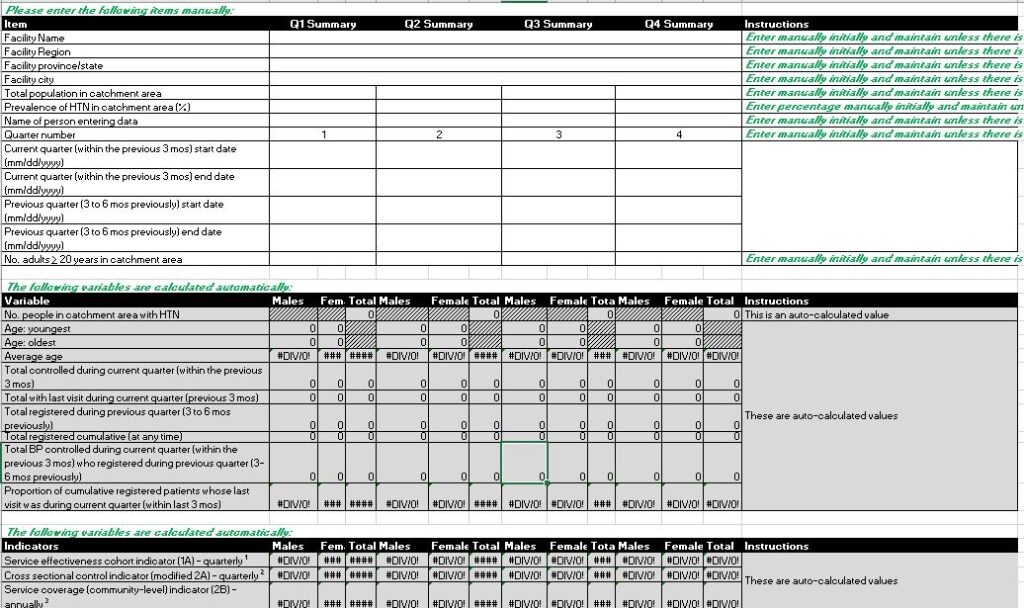
Excel spreadsheet to assist health facilities register new hypertension patients and calculate facility hypertension control rates (download)
Team-based hypertension management in primary health care
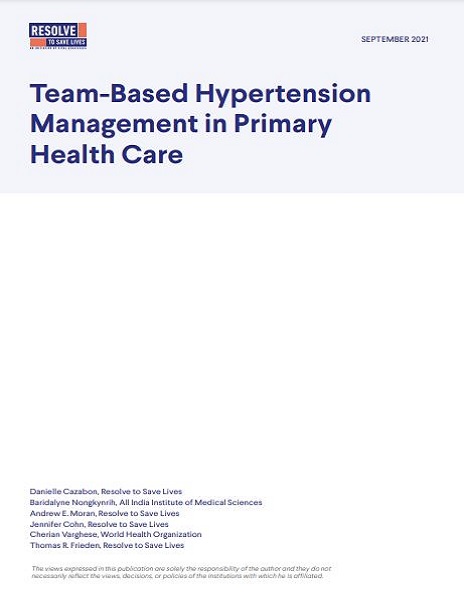
A guide that expands upon the WHO’s team-based care module of the HEARTS technical package, providing guidance and resources to assist in implementing team-based care for hypertension at the primary health care facility level
Managing Large-Scale Hypertension Control Programs: A Six-Step Guide
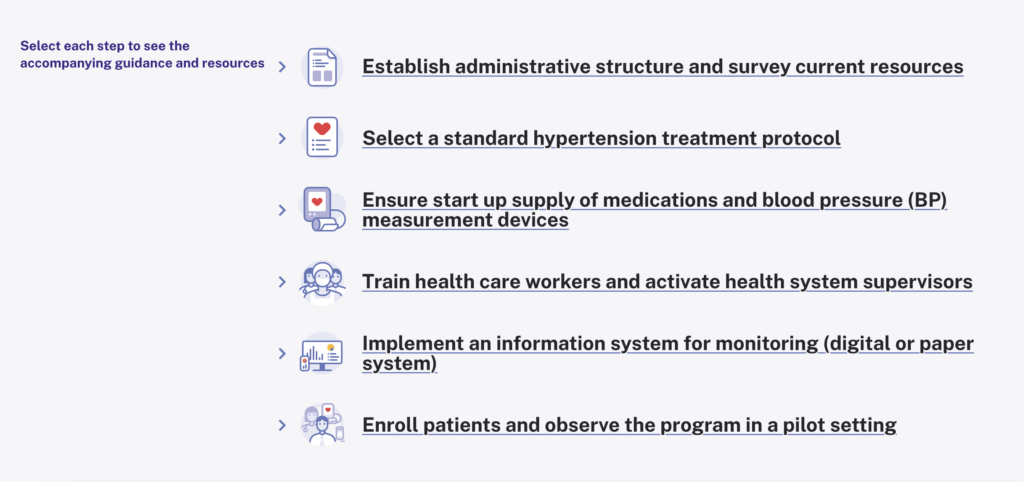
Our guide for program managers starting up national or subnational hypertension control programs, broken down into six steps and and supported by practical tools from our hypertension control resource library and the WHO HEARTS technical package and adaptable to the local program and setting.
Million Hearts Hypertension Control Change Package
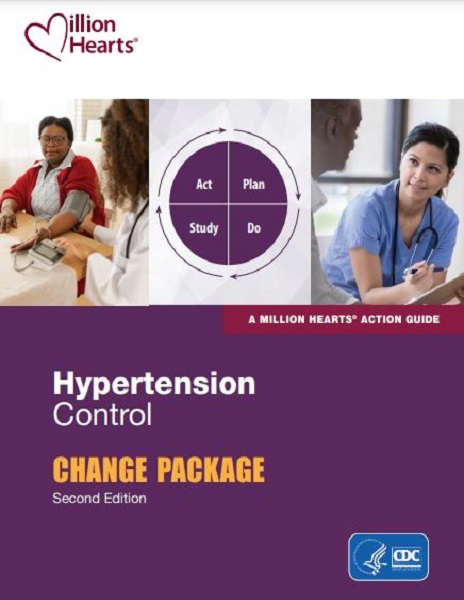
Technical package including process improvements that outpatient clinical settings can implement to improve hypertension control rates
Simplified indicator calculator example
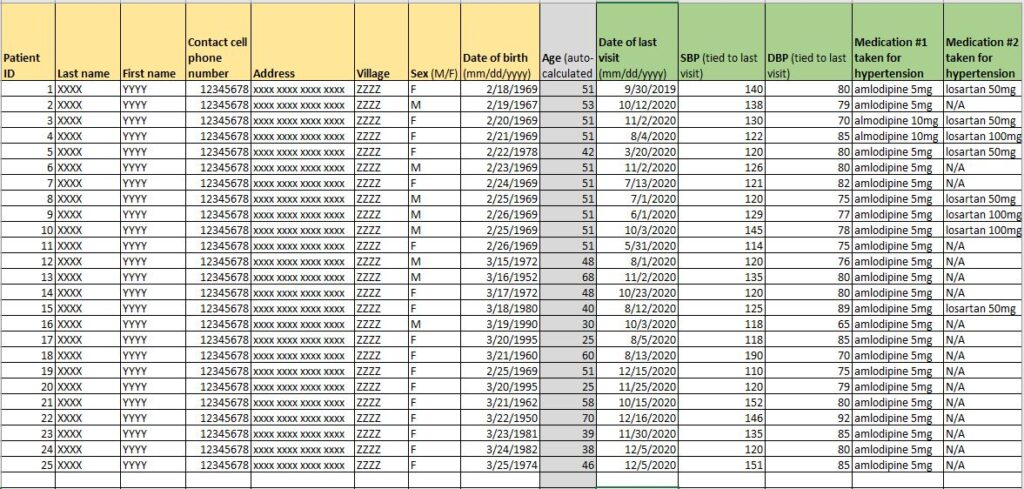
Example of completed spreadsheet for registering new hypertension patients and calculating facility hypertension control rates (download)
Lives saved calculator for cardiovascular health interventions
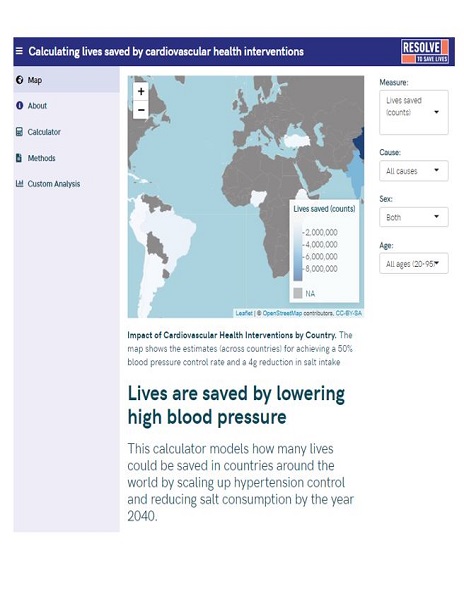
Calculator modeling the impact of cardiovascular health interventions (including improved hypertension control and sodium reduction) by country
Blood pressure measurement device selection in low‐resource settings: Challenges, compromises, and routes to progress
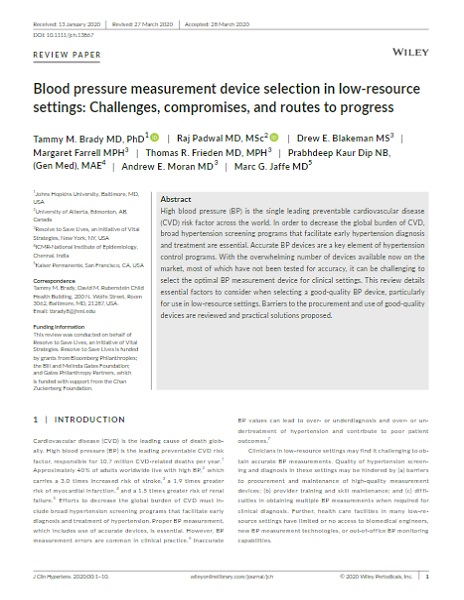
Article published in the Journal of Clinical Hypertension
WHO technical specifications for blood pressure devices
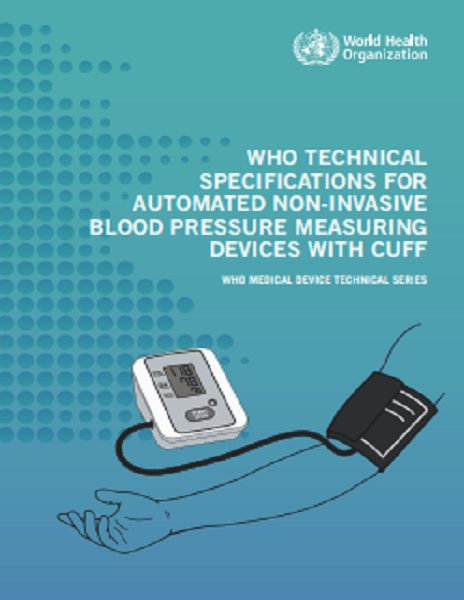
Updated guidance on blood pressure measuring devices (2020)
Hearts in the Americas: Guide and essentials for implementation
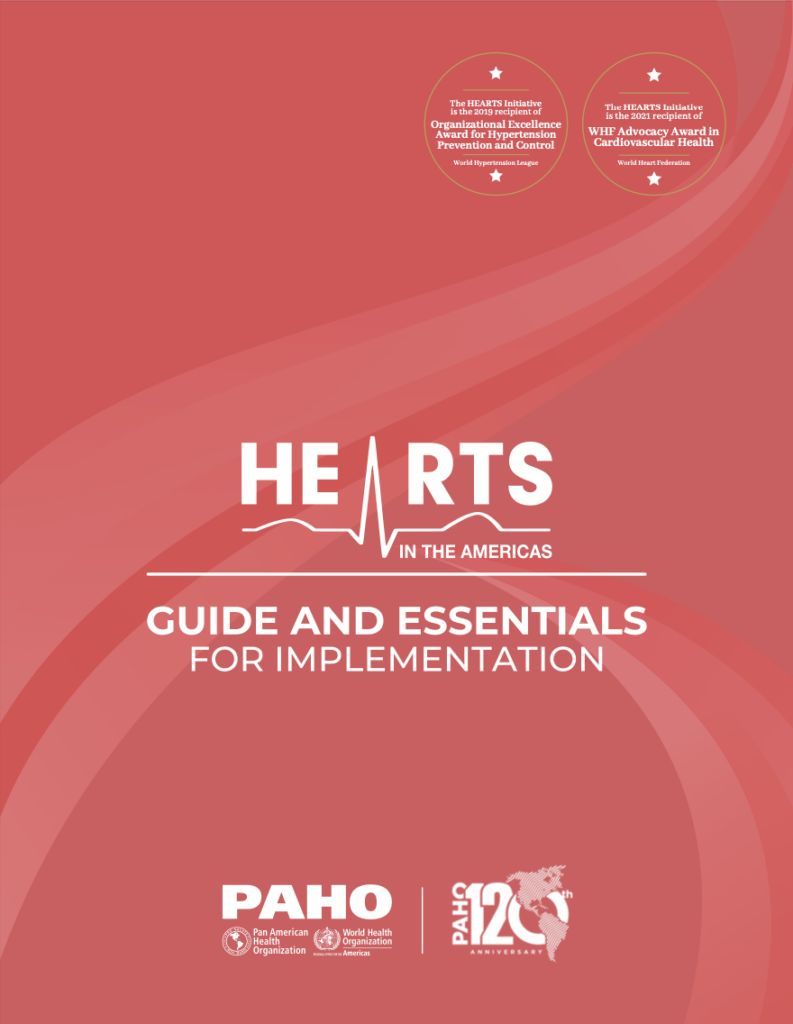
Manual for hypertension program implementers at national and subnational levels
Hypertension treatment protocol: West Bengal, India
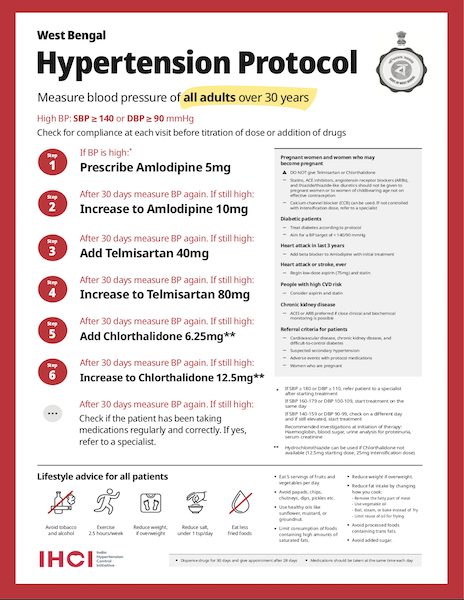
Sample treatment protocol used by RTSL partners in West Bengal, India
Hypertension treatment protocol: Vietnam
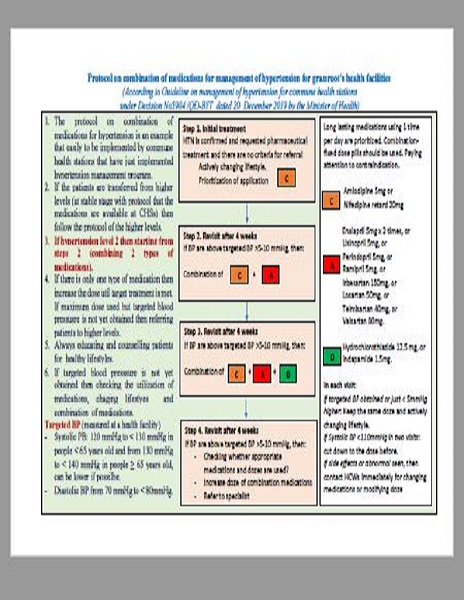
Sample treatment protocol used by RTSL partners in Vietnam
Hypertension treatment protocol: Karnataka, India
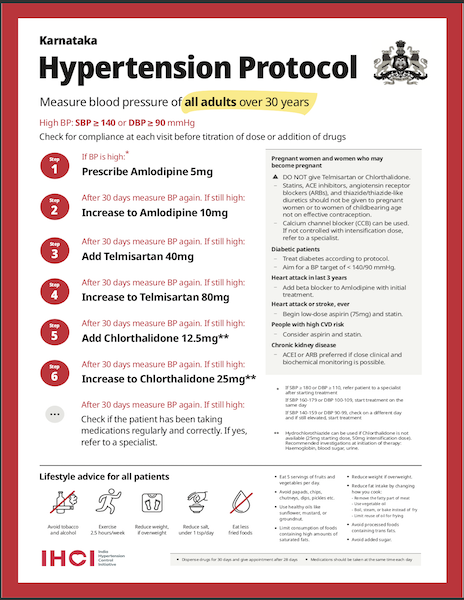
Sample treatment protocol used by RTSL partners in Karnataka, India
Hypertension treatment protocol: Nigeria
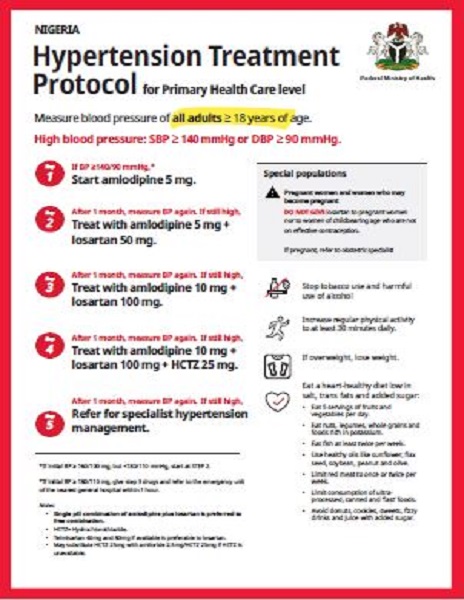
Sample treatment protocol used by RTSL partners in Nigeria
Hypertension treatment protocol: Bihar, India
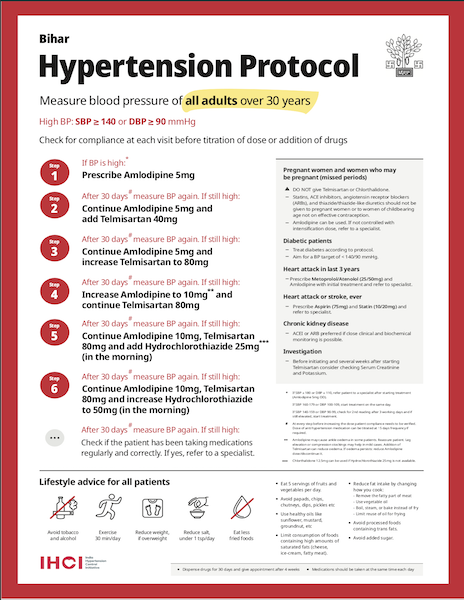
Sample treatment protocol used by RTSL partners in Bihar, India
Hypertension treatment protocol: Andhra Pradesh, India
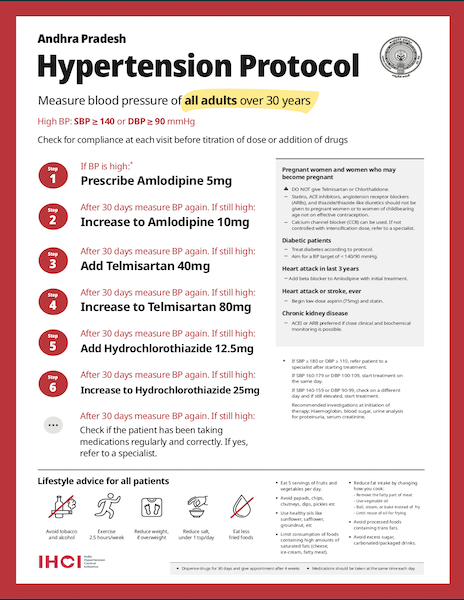
Sample treatment protocol used by RTSL partners in Andhra Pradesh, India
Estimation of the global gap in clinic visits for hypertension care between patient need and physician capacity
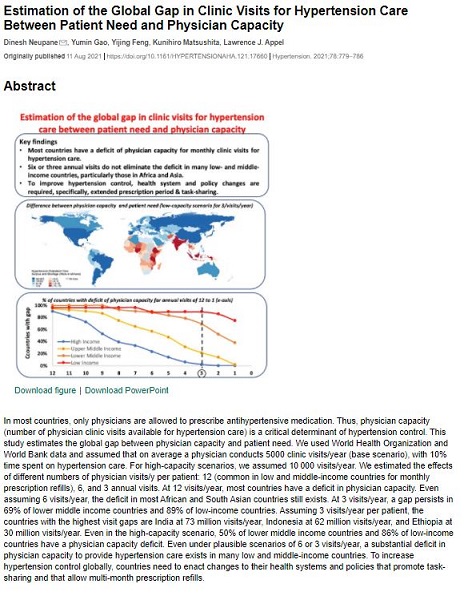
Article published in Hypertension Abstract In most countries, only physicians are allowed to prescribe antihypertensive medication. Thus, physician capacity (number of physician clinic visits available for hypertension care) is a critical determinant of hypertension control. This study estimates the global gap between physician capacity and patient need. We used World Health Organization and World Bank […]
Hypertension treatment protocol: Sri Lanka
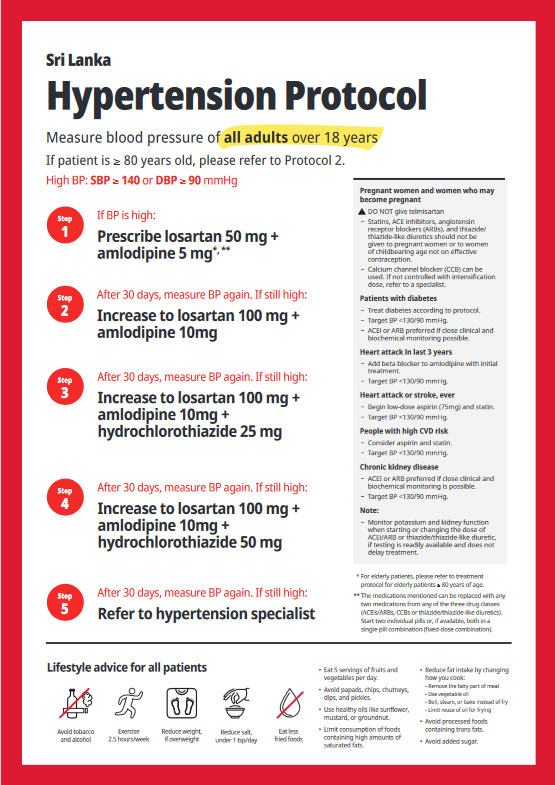
Sample treatment protocol used by RTSL partners in Sri Lanka
Dyskalemia risk associated with fixed-dose anti-hypertensive medication combinations
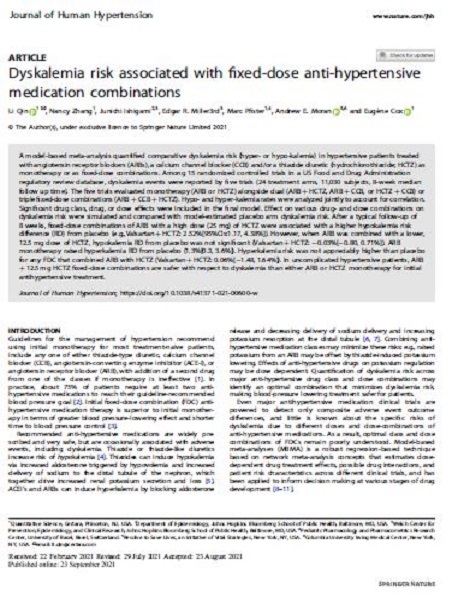
Article published in the Journal of Human Hypertension in September 2021
Drivers and scorecards to improve hypertension control in primary care practice: Recommendations from the HEARTS in the Americas Innovation Group
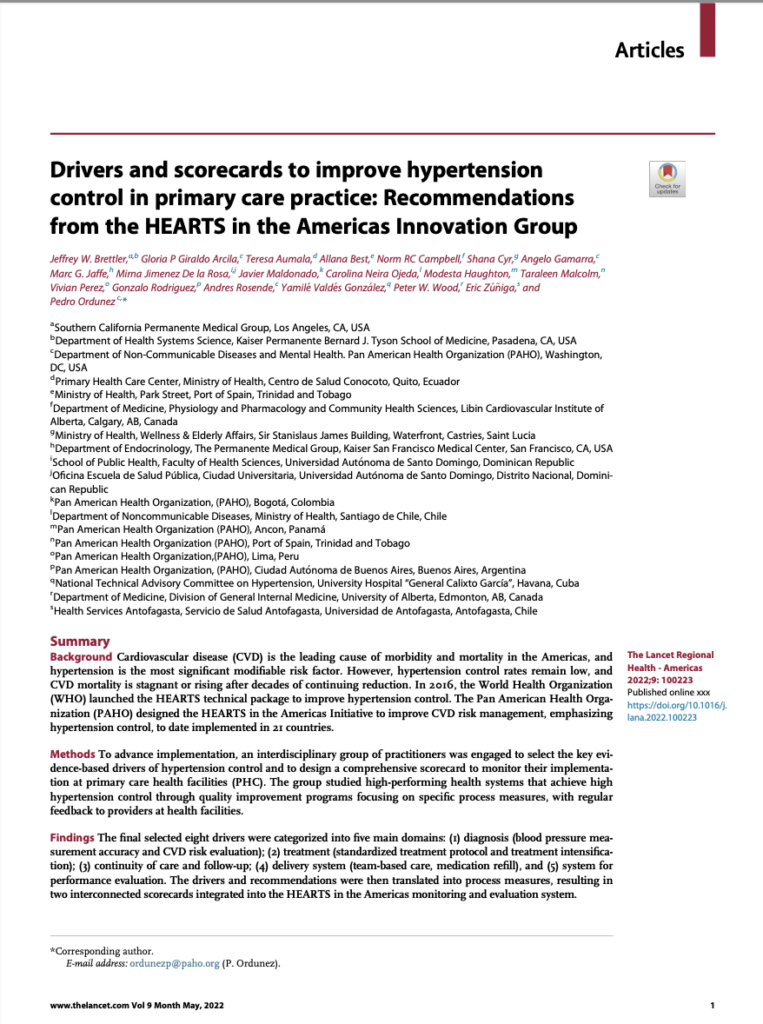
Article published in the Lancet Regional Health – Americas
Baseline facility checklist
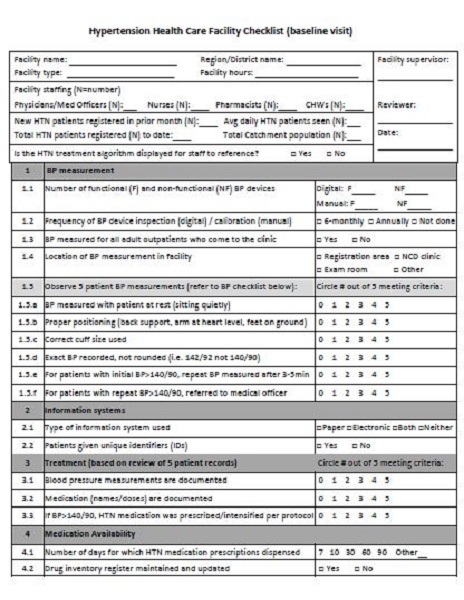
Checklist that can be used to survey resources in the clinic setting for a hypertension program
Improving hypertension control in 3 million people: country experiences of program development and implementation
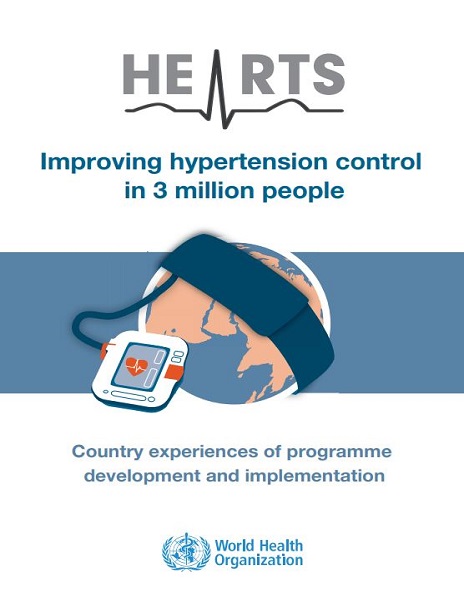
Case studies on the implementation of HEARTS from 18 countries
Validated Automated Blood Pressure Devices

Fact sheet from Resolve to Save Lives on why validated, digital blood pressure monitors are preferred.
Improved Blood Pressure Control Associated With a Large-Scale Hypertension Program
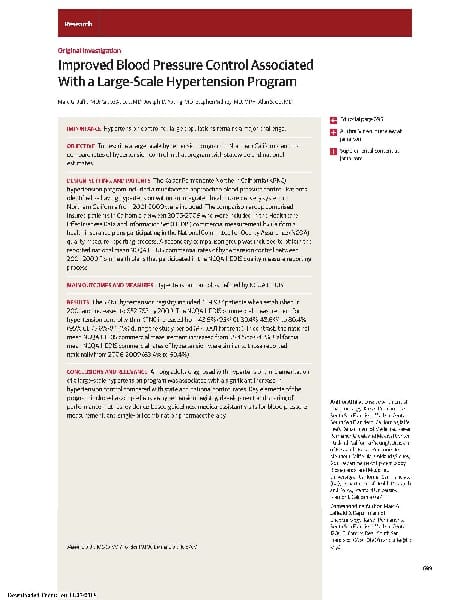
Case study of Kaiser Permanente Northern California’s successful hypertension control program published in JAMA
Recommended treatment protocols to improve management of hypertension globally
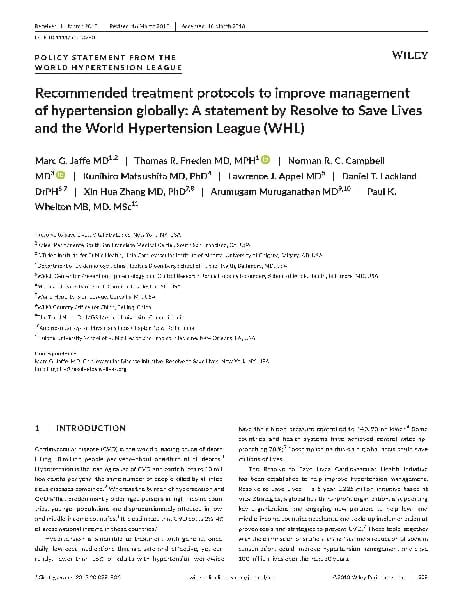
Position statement from Resolve to Save Lives and the World Hypertension League published in the Journal of Clinical Hypertension
Hypertension Facility Visit Checklist
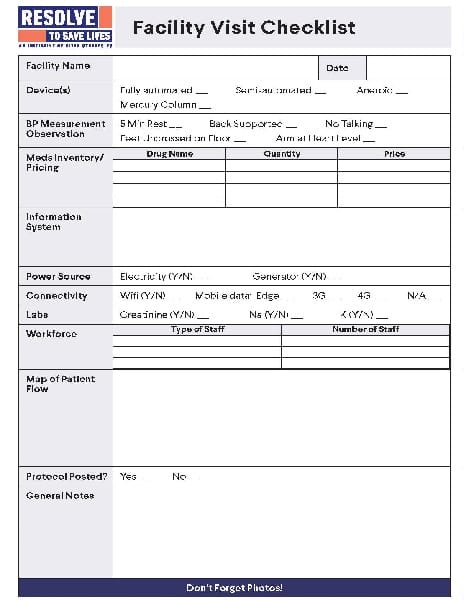
Hypertension program monitoring visit checklist
Why is hypertension important?
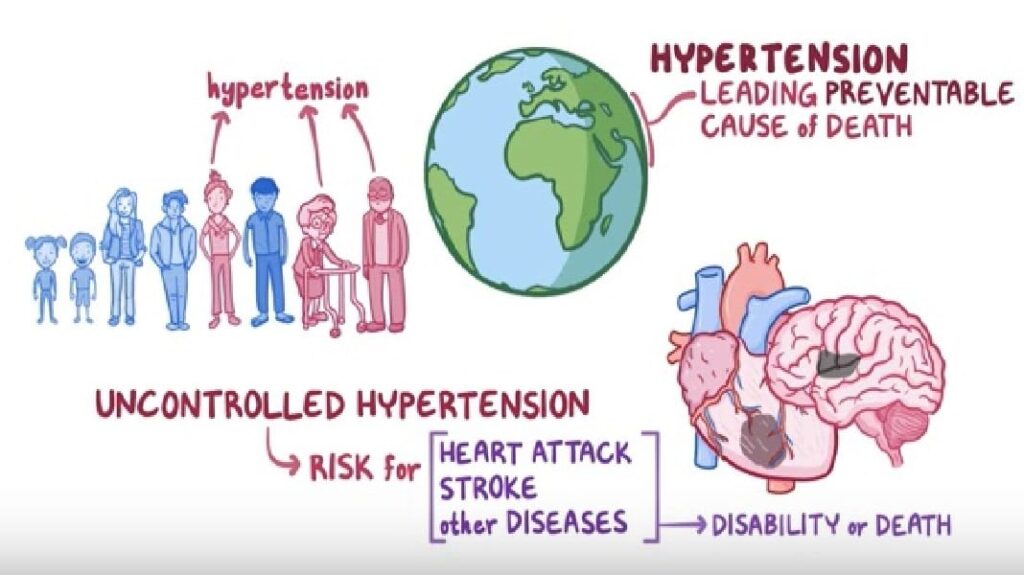
Video for health workers from Johns Hopkins School of Public Health
10 hypertension myths and facts
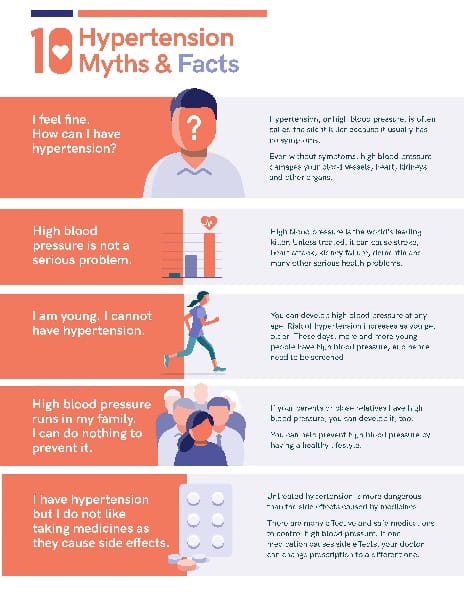
Fact sheet with commons myths about hypertension
How to diagnose hypertension
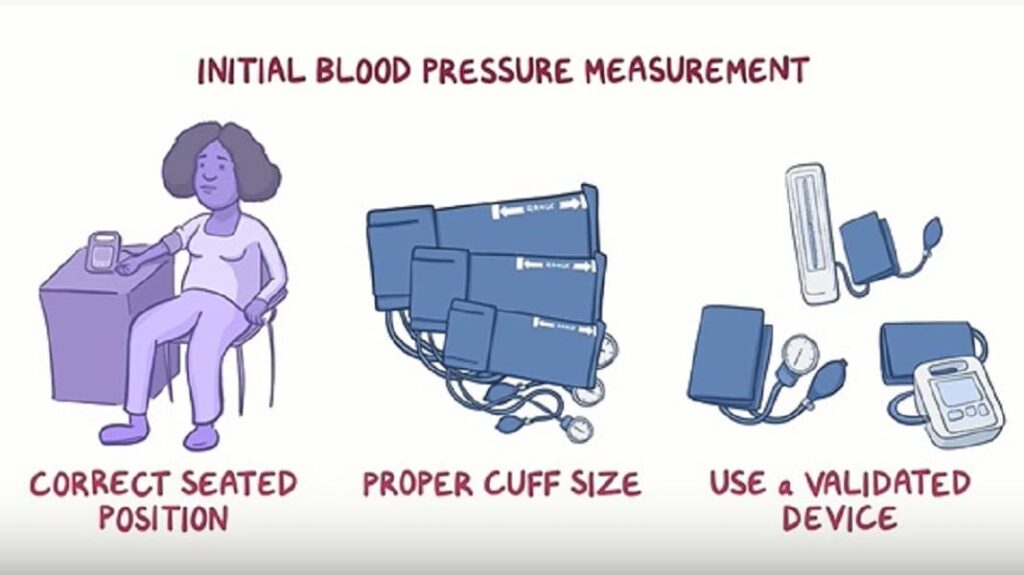
Video for health workers from Johns Hopkins School of Public Health
Preparing an individual for blood pressure measurement
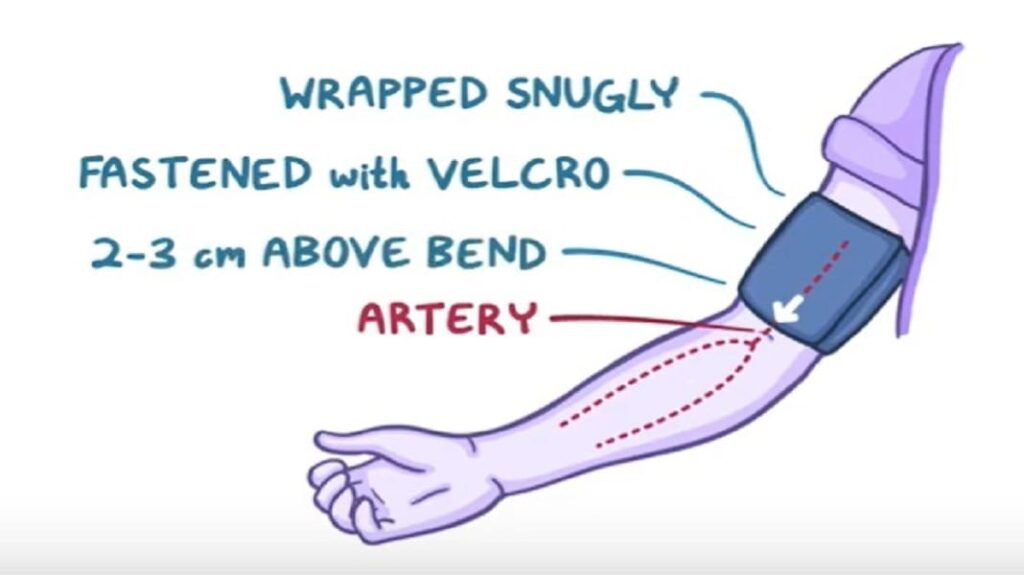
Video for health care workers from Johns Hopkins School of Public Health
Automated digital blood pressure devices
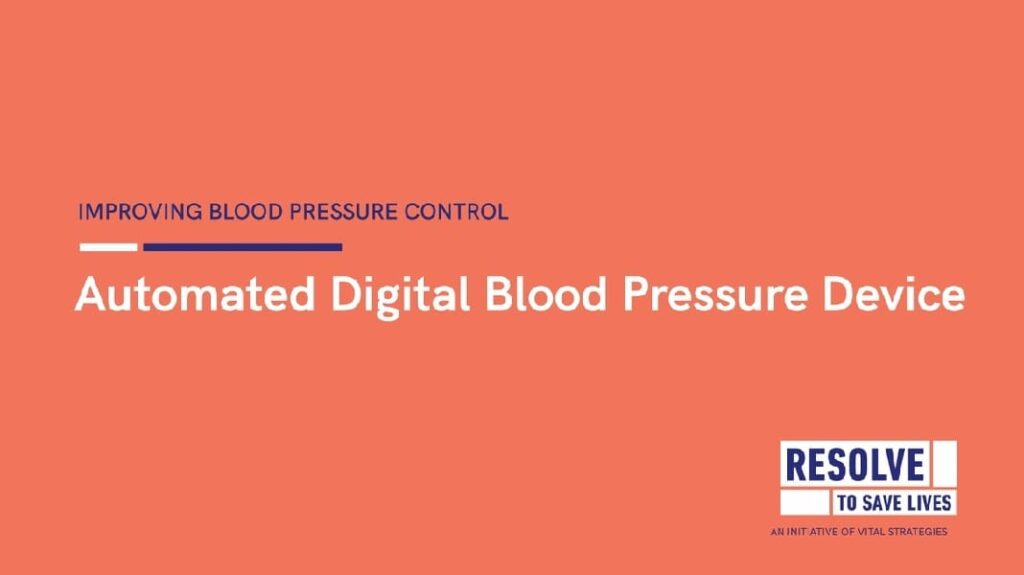
Short video from Resolve to Save Lives on how automated, digital blood pressure devices promote accurate blood pressure measurement at scale